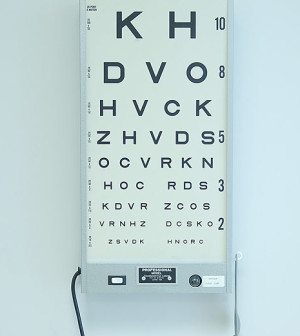- The Best Time of Day to Drink Bone Broth to Maximize Health Benefits
- 8 Ways to Increase Dopamine Naturally
- 7 Best Breads for Maintaining Stable Blood Sugar
- Gelatin vs. Collagen: Which is Best for Skin, Nails, and Joints?
- The Long-Term Effects of Daily Turmeric Supplements on Liver Health
- Could Your Grocery Store Meat Be Causing Recurring UTIs?
- Are You Making This Expensive Thermostat Error This Winter?
- Recognizing the Signs of Hypothyroidism
- 10 Strategies to Overcome Insomnia
- Could Artificial Sweeteners Be Aging the Brain Faster?
Bacteria May Survive Longer in Contact Lens Solution Than Thought


Bacteria that can cause serious eye infections are able to survive longer in contact lens cleaning solution than previously known, a new study finds.
Researchers looked at different strains of Pseudomonas aeruginosa, which can cause microbial keratitis. This is an inflammation and ulceration of the cornea that can cause vision loss.
The investigators tested nine strains of P. aeruginosa gathered from hospital patients in Britain and compared them to P. aeruginosa strain 9027, which is the standard one used in tests by makers of contact lens disinfectant solutions.
Most of the strains were killed within 10 minutes after being placed in the contact lens solution, a result comparable to strain 9027. However, strain 39016 — which causes more severe cases of keratitis with a longer healing time — survived in the solution for more than four hours.
The findings, scheduled for presentation Wednesday at a Society for General Microbiology meeting in Liverpool, England, suggest that tests of contact lens solutions should determine if they can kill all P. aeruginosa strains, the University of Liverpool researchers said.
“Microbial keratitis can be devastating for a patient — it is important that the risk of developing this condition is reduced in contact lens wearers by improving contact lens disinfectant solutions,” study leader Craig Winstanley said in a society news release.
Because this study was presented at a medical meeting, it should be viewed as preliminary until published in a peer-reviewed journal.
Each year in the United Kingdom, there are about 6,000 cases of microbial keratitis, the news release noted.
More information
The American Academy of Ophthalmology has more about contact lens-related eye infections.
Source: HealthDay
Copyright © 2026 HealthDay. All rights reserved.










